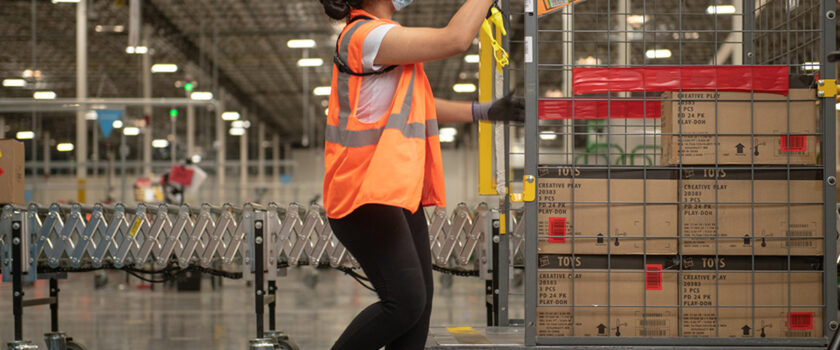
In the ever-evolving landscape of warehouse and logistics, staying ahead of the curve is essential. As technology advances and consumer demands shift, certain roles become increasingly crucial in keeping supply chains efficient and operational. In this blog, we’ll explore the top 10 jobs in demand for the warehouse and logistics sector in 2024, offering insights into each role’s responsibilities, required skills, and growth prospects. Let’s start off our list!
- Warehouse Manager:
Warehouse managers play a pivotal role in overseeing the day-to-day operations of a warehouse facility. They are responsible for managing inventory, optimizing workflows, and ensuring efficient utilization of space. Strong leadership skills, inventory management expertise, and the ability to leverage technology for process improvement are essential for this role. - Supply Chain Analyst:
Supply chain analysts analyze data to identify inefficiencies and areas for improvement within the supply chain. They use statistical techniques and software tools to optimize inventory levels, reduce costs, and enhance overall supply chain performance. Proficiency in data analysis, critical thinking, and problem-solving are key attributes for success in this role. - Logistics Coordinator:
Logistics coordinators are tasked with coordinating the movement of goods from suppliers to customers. They manage transportation schedules, track shipments, and communicate with carriers to ensure timely delivery. Strong organizational skills, attention to detail, and the ability to multitask are essential for this fast-paced role. - Forklift Operator:
Forklift operators are responsible for operating forklifts and other equipment to move materials within a warehouse or distribution center. They must adhere to safety protocols, accurately track inventory movements, and ensure the efficient loading and unloading of goods. Proper forklift certification and a focus on safety are paramount for this role. - Inventory Control Specialist:
Inventory control specialists monitor and manage inventory levels to prevent stockouts and overstock situations. They track inventory movements, conduct cycle counts, and implement inventory control procedures to optimize stock levels and minimize carrying costs. Attention to detail, strong analytical skills, and proficiency in inventory management software are essential for success in this role. - E-commerce Fulfillment Specialist:
With the rise of e-commerce, the demand for e-commerce fulfillment specialists has surged. These professionals are responsible for processing online orders, picking and packing items for shipment, and ensuring accurate order fulfillment. Attention to detail, time management skills, and the ability to thrive in a fast-paced environment are critical for this role. - Transportation Manager:
Transportation managers oversee the transportation of goods from suppliers to distribution centers or directly to customers. They plan and optimize transportation routes, negotiate contracts with carriers, and ensure compliance with regulations. Strong communication skills, negotiation abilities, and a deep understanding of transportation logistics are essential for this role. - Warehouse Associate:
Warehouse associates perform a variety of tasks within a warehouse, including receiving, storing, and picking goods for shipment. They may also operate equipment such as pallet jacks and hand trucks to move materials. Physical stamina, attention to detail, and the ability to work effectively in a team are key attributes for this role. - Reverse Logistics Specialist:
Reverse logistics specialists manage the return of goods from customers to the warehouse or distribution center. They process returns, inspect returned items for damage, and determine the appropriate disposition, such as restocking, refurbishing, or disposal. Strong problem-solving skills, attention to detail, and knowledge of reverse logistics processes are essential for this role. - Robotics Technician:
As warehouses increasingly adopt automation technologies, the demand for robotics technicians has grown. These professionals are responsible for installing, maintaining, and troubleshooting robotic systems used in warehouse operations. Technical proficiency, problem-solving abilities, and a willingness to learn about emerging technologies are essential for success in this cutting-edge role.
Conclusion:
The warehouse and logistics sector is evolving rapidly, driven by technological advancements and changing consumer preferences. By pursuing careers in high-demand roles such as warehouse manager, supply chain analyst, and e-commerce fulfillment specialist, individuals can position themselves for success in this dynamic industry. With the right skills and expertise, opportunities abound for those seeking rewarding careers in warehouse and logistics in 2024 and beyond.


